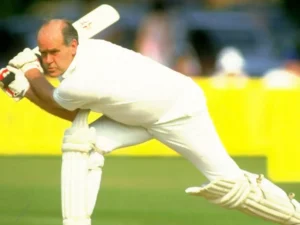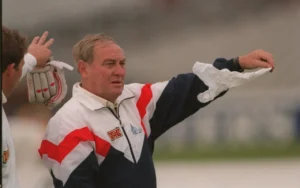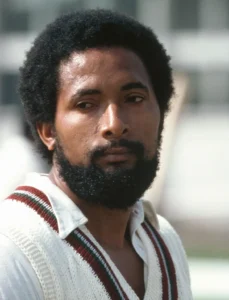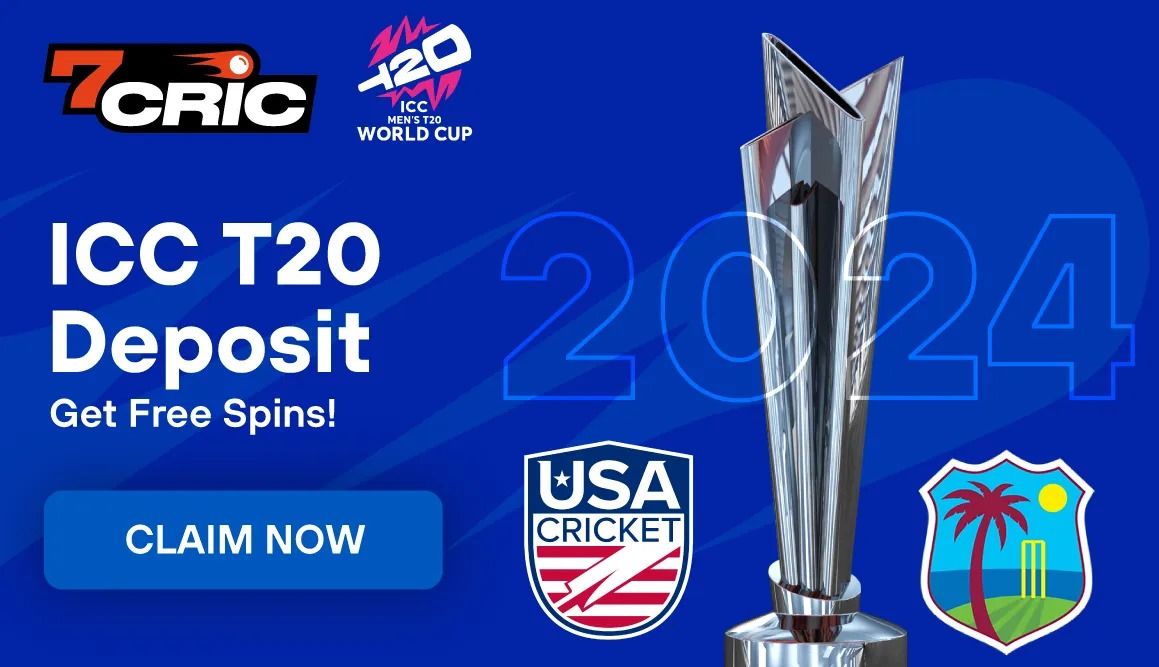Virat Kohli vs MS Dhoni

Virat Kohli
Batsman,
About Virat Kohli
Virat Kohli, a prominent figure in international cricket, rose to prominence as a dynamic leader during the 2008 Under-19 World Cup, where he led India to victory. Despite initial challenges in securing a spot in the senior national team, Kohli's persistence paid off, showcasing his potential with commendable performances. Notably, his breakthrough innings came during a tense run-chase against Sri Lanka, solidifying his reputation as a reliable player under pressure. Kohli's journey continued with remarkable achievements, including multiple ODI records and influential contributions to India's success in major tournaments. Renowned for his aggressive yet calculated batting style, Kohli's tenure as captain further showcased his leadership abilities, guiding India to significant victories and earning accolades both on and off the field. In the Indian Premier League, Kohli's unwavering commitment to the Royal Challengers Bangalore franchise has solidified his status as one of the league's most iconic figures, despite the team's elusive quest for a title.
Profile Details

MS Dhoni
WK-Batsman, India
About MS Dhoni
Mahendra Singh Dhoni, born on July 7, 1981, in Ranchi, Bihar (now in Jharkhand), India, is a celebrated figure in the realm of cricket. Dhoni's journey from his first-class debut for Bihar in 1999 to becoming an indispensable part of the Indian cricket team is a tale of perseverance and skill. He made his mark on the international scene on December 23, 2004, in an ODI against Bangladesh, and his Test debut followed a year later against Sri Lanka. Dhoni's leadership qualities shone brightly when he took over as the captain of the ODI team in 2007, and by 2008, he was leading the team across all formats. Known for his cool demeanor and astute cricketing brain, Dhoni has been instrumental in India's numerous victories, including leading the team to win the ICC World T20 in 2007, the ICC Cricket World Cup in 2011, and the ICC Champions Trophy in 2013. His journey from playing as a goalkeeper in his school's football team to becoming one of the most successful captains in cricket history is a testament to his versatility and dedication to the sport.
Profile Details
Batting Stats Head-to-Head
Virat Kohli vs MS Dhoni
Most Runs
Highest Scores
Batting Average
Strike Rate
Most Centuries
Most Sixes
Bowling Stats Head-to-Head
Virat Kohli vs MS Dhoni
Most Wickets
Most Innings
Economy Rate
Bowling Average
Strike Rate
Most Runs
Virat Kohli Career Statistics
| Format | Matches (M) | Innings (Inn) | Not Outs (NO) | Runs (R) | High Score (HS) | Average (Avg.) | Balls Faced (BF) | Strike Rate (SR) | Hundreds (H) | Fifties (50x) | Fours (4s) | Sixes (6s) |
|---|---|---|---|---|---|---|---|---|---|---|---|---|
| Test | 113 | 191 | 11 | 8848 | 254 | 49.16 | 15924 | 55.56 | 29 | 30 | 991 | 26 |
| ODI | 292 | 280 | 44 | 13848 | 183 | 58.68 | 14797 | 93.59 | 50 | 72 | 1294 | 152 |
| T20i | 117 | 109 | 31 | 4037 | 122 | 51.76 | 2922 | 138.16 | 1 | 37 | 361 | 117 |
| IPL | 237 | 229 | 34 | 7263 | 113 | 37.25 | 5586 | 130.02 | 7 | 50 | 643 | 234 |
| Format | Matches (M) | Innings (Inn) | Balls (B) | Runs (R) | Wickets (W) | BBM | Average (Avg.) | Economy (Econ.) | Strike Rate (SR) | 5W | 10W |
|---|---|---|---|---|---|---|---|---|---|---|---|
| Test | 113 | 11 | 175 | 84 | 0 | 0/0 | 0.0 | 2.88 | 0.0 | 0 | 0 |
| ODI | 292 | 50 | 662 | 680 | 5 | 1/13 | 136.0 | 6.16 | 132.4 | 0 | 0 |
| T20i | 117 | 13 | 152 | 204 | 4 | 1/13 | 51.0 | 8.05 | 38.0 | 0 | 0 |
| IPL | 237 | 26 | 251 | 368 | 4 | 2/25 | 92.0 | 8.8 | 62.75 | 0 | 0 |
MS Dhoni Career Statistics
| Format | Matches (M) | Innings (Inn) | Not Outs (NO) | Runs (R) | High Score (HS) | Average (Avg.) | Balls Faced (BF) | Strike Rate (SR) | Hundreds (H) | Fifties (50x) | Fours (4s) | Sixes (6s) |
|---|---|---|---|---|---|---|---|---|---|---|---|---|
| Test | 90 | 144 | 16 | 4876 | 224 | 38.09 | 8248 | 59.12 | 6 | 33 | 544 | 78 |
| ODI | 350 | 297 | 84 | 10773 | 183 | 50.58 | 12303 | 87.56 | 10 | 73 | 826 | 229 |
| T20i | 98 | 85 | 42 | 1617 | 56 | 37.6 | 1282 | 126.13 | 0 | 2 | 116 | 52 |
| IPL | 250 | 218 | 87 | 5082 | 84 | 38.79 | 3739 | 135.92 | 0 | 24 | 349 | 239 |
| Format | Matches (M) | Innings (Inn) | Balls (B) | Runs (R) | Wickets (W) | BBM | Average (Avg.) | Economy (Econ.) | Strike Rate (SR) | 5W | 10W |
|---|---|---|---|---|---|---|---|---|---|---|---|
| Test | 90 | 7 | 96 | 67 | 0 | 0/1 | 0.0 | 4.19 | 0.0 | 0 | 0 |
| ODI | 350 | 2 | 36 | 31 | 1 | 1/14 | 31.0 | 5.17 | 36.0 | 0 | 0 |
| T20i | 98 | - | - | - | - | - | - | - | - | - | - |
| IPL | 250 | - | - | - | - | - | - | - | - | - | - |

Virat Kohli vs MS Dhoni
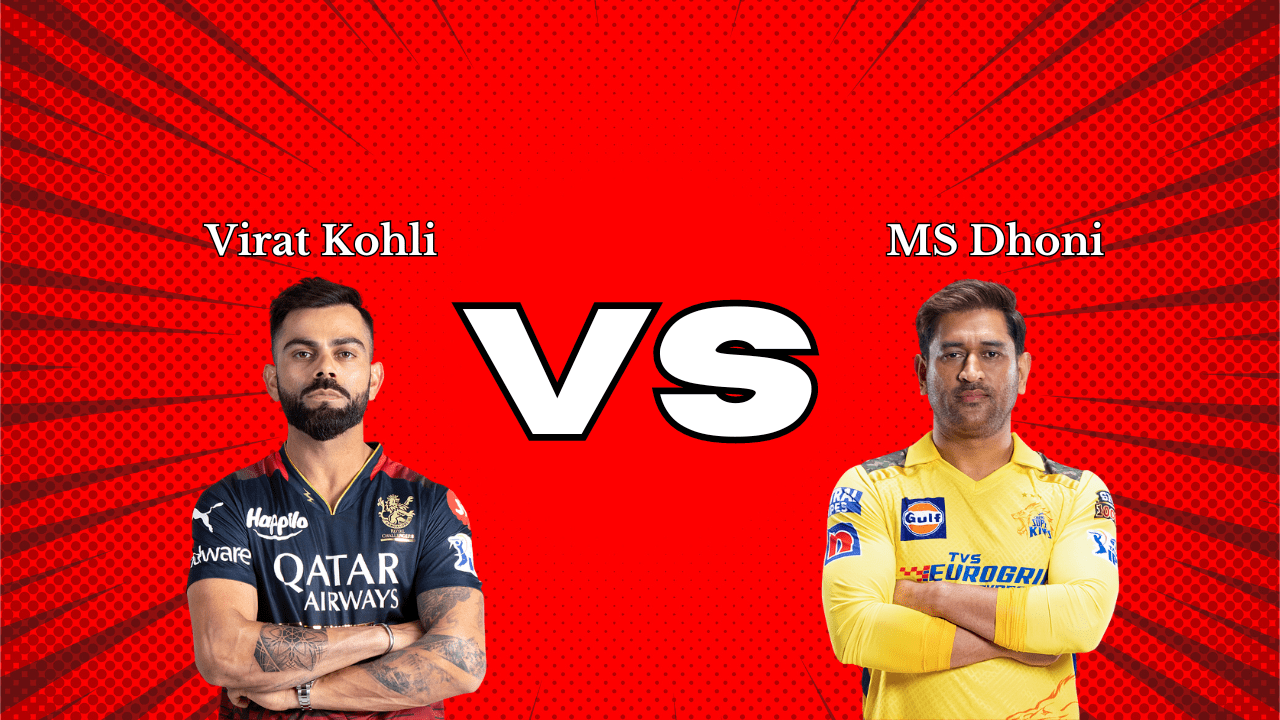
Virat Kohli vs MS Dhoni – In the world of cricket, few rivalries spark as much discussion as the comparison between the phenomenal talents of Virat Kohli and MS Dhoni.
With each cricketer having earned his place in the annals of the sport through remarkable contributions, both regarding individual performance and leadership, the debate over who holds the superior career statistics is a complex and nuanced one.
As we turn our attention to the numbers, we invite you to join us in this engaging analysis, promising a rich exploration of cricketing brilliance.
Virat Kohli: Career Overview
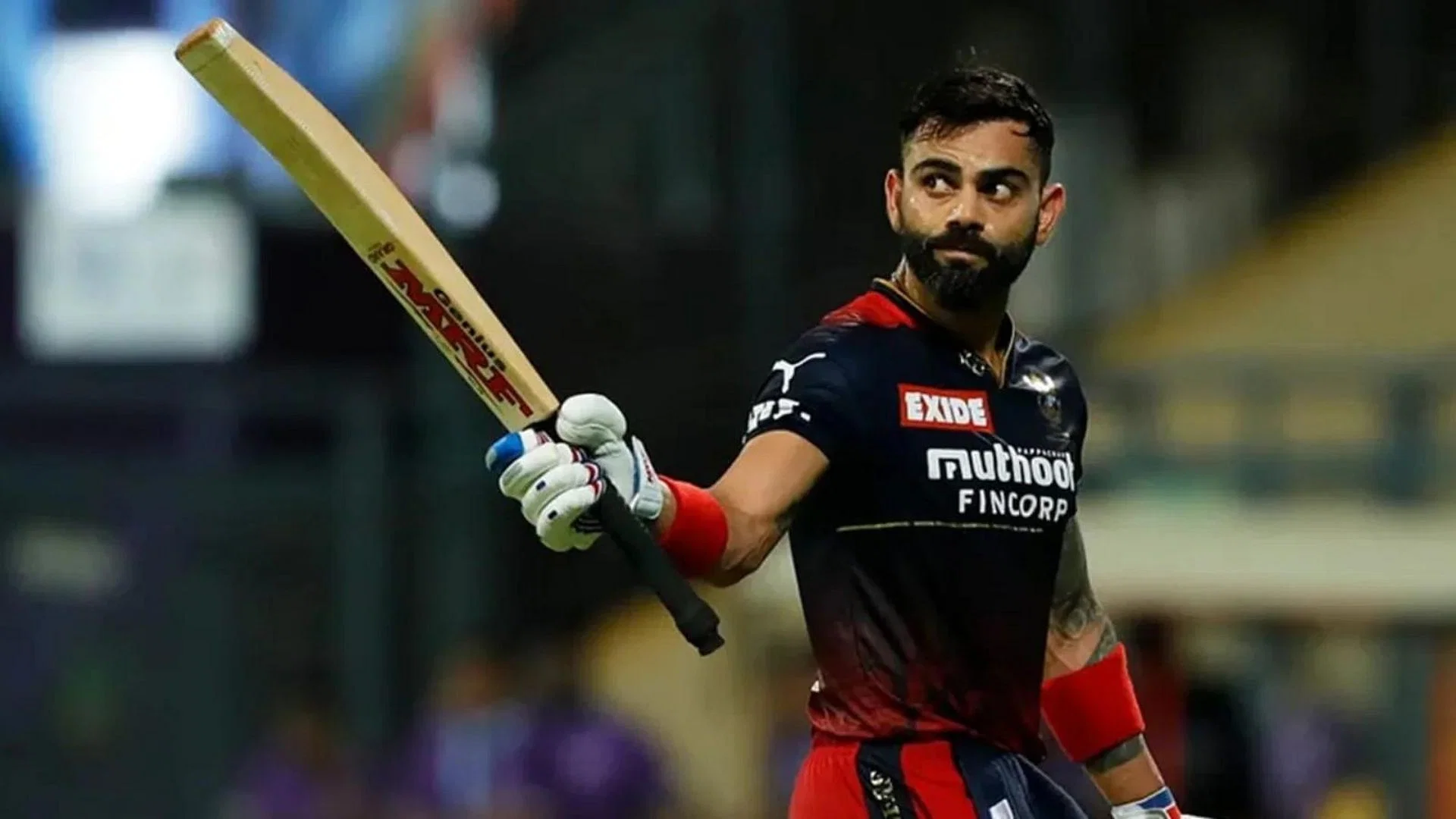
Virat Kohli, an eminent figure in international cricket, commenced his professional career in 2008, showcasing an outstanding knack for the sport that has resulted in a variety of achievements and accolades.
His first decade in international cricket was marked by a consistent rise in performance, which has culminated in him becoming the fastest player to score 10,000 runs in One-Day Internationals, a validation of his personal achievements.
A closer examination of Kohli’s career reveals a blend of technical proficiency, aggressive play, and disciplined conduct – attributes that have earned him significant endorsements.
His association with brands like Puma, Audi, and MRF reflects his marketability, largely driven by his on-field performance and off-field charisma.
These endorsements not only enhance his financial profile but also amplify his global influence in the sport.
Furthermore, Kohli’s personal achievements extend beyond the cricket field. He is a recipient of the prestigious Sir Garfield Sobers Trophy for ICC Cricketer of the Year in 2017 and 2018, and the Rajiv Gandhi Khel Ratna award – India’s highest sporting honor.
Despite his meteoric rise, Kohli remains committed to his craft, consistently seeking improvement and perfection, thereby embodying the spirit of liberation that fans aspire to – Virat Kohli vs MS Dhoni.
MS Dhoni: Career Highlights
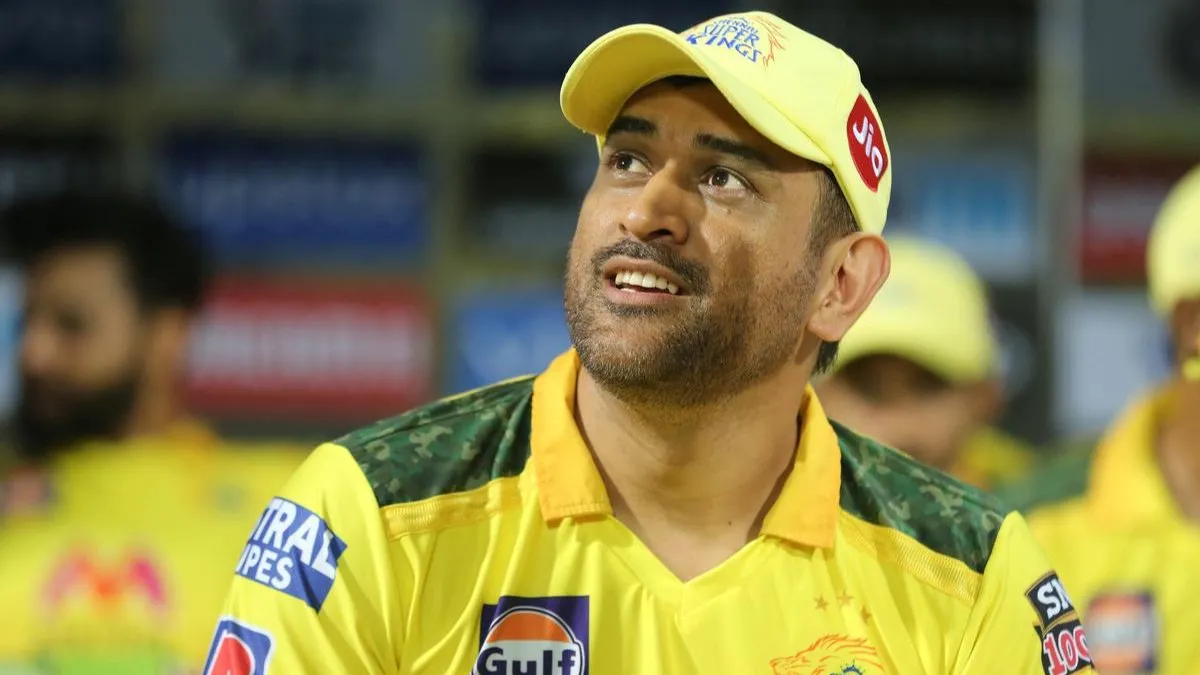
Equally distinguished in the annals of cricket history is Mahendra Singh Dhoni, who commenced on his professional journey in 2004, leaving an indelible mark on the sport through his exemplary leadership and strategic acumen.
His career trajectory, marked by numerous accolades and records, is a proof of his unwavering dedication and masterful command over the game.
Dhoni’s wicketkeeping prowess, characterized by his lightning-fast reflexes, unerring accuracy, and strategic intelligence, has set a new benchmark in international cricket.
He is credited with numerous match-winning stumpings and catches, etching his name in the annals of cricketing greats.
A hallmark of Dhoni’s career was his captaincy, which brought unprecedented success to the Indian cricket team.
Under his stewardship, India clinched the 2007 T20 World Cup, 2011 ODI World Cup, and the 2013 Champions Trophy, a proof unmatched by any other captain in history.
Dhoni’s retirement in 2020 marked the end of an illustrious career that spanned over 16 years, leaving behind a legacy that will continue to inspire generations.
His career is an embodiment of resilience, determination, and strategic brilliance, making him one of the most revered figures in cricket.
Batting Statistics: Virat Kohli Vs MS Dhoni
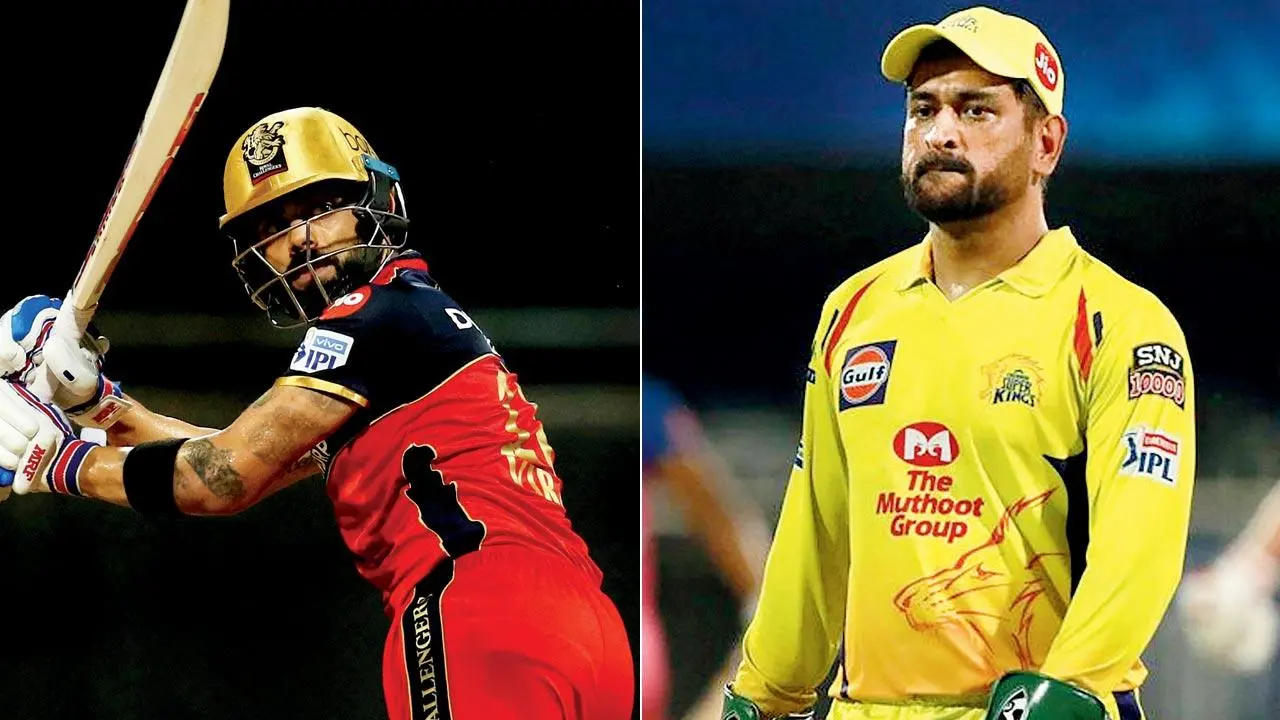
Virat Kohli vs MS Dhoni – In order to gain a thorough understanding of their respective contributions to the game, a detailed analysis of Dhoni and Kohli’s batting statistics is essential.
Both players have had remarkable careers, albeit with contrasting styles; Kohli’s aggression is as well-known as Dhoni’s composure.
- Kohli, with his aggressive approach, has notched up 70 centuries in international cricket, a proof of his hunger for big scores. His average in One Day Internationals (ODI) is an impressive 59.07.
- Dhoni’s batting average in ODIs, on the other hand, is slightly lower at 50.57. However, his calm and composed approach has often seen him steer the team to victory in high-pressure situations.
- Kohli’s Test average is 52.04 with 27 centuries, reflecting his adaptability across formats. His aggressive style has often changed the course of a match.
- Dhoni, despite a lower Test average of 38.09, has been a dependable middle-order batsman. His composure under pressure has been critical in saving and winning matches for the team.
Their contrasting styles and statistics provide a fascinating study of two of India’s greatest cricketers. Both have left indelible marks on the game, influencing generations of aspiring cricketers – Virat Kohli vs MS Dhoni.
Captaincy Records: Dhoni Vs Kohli
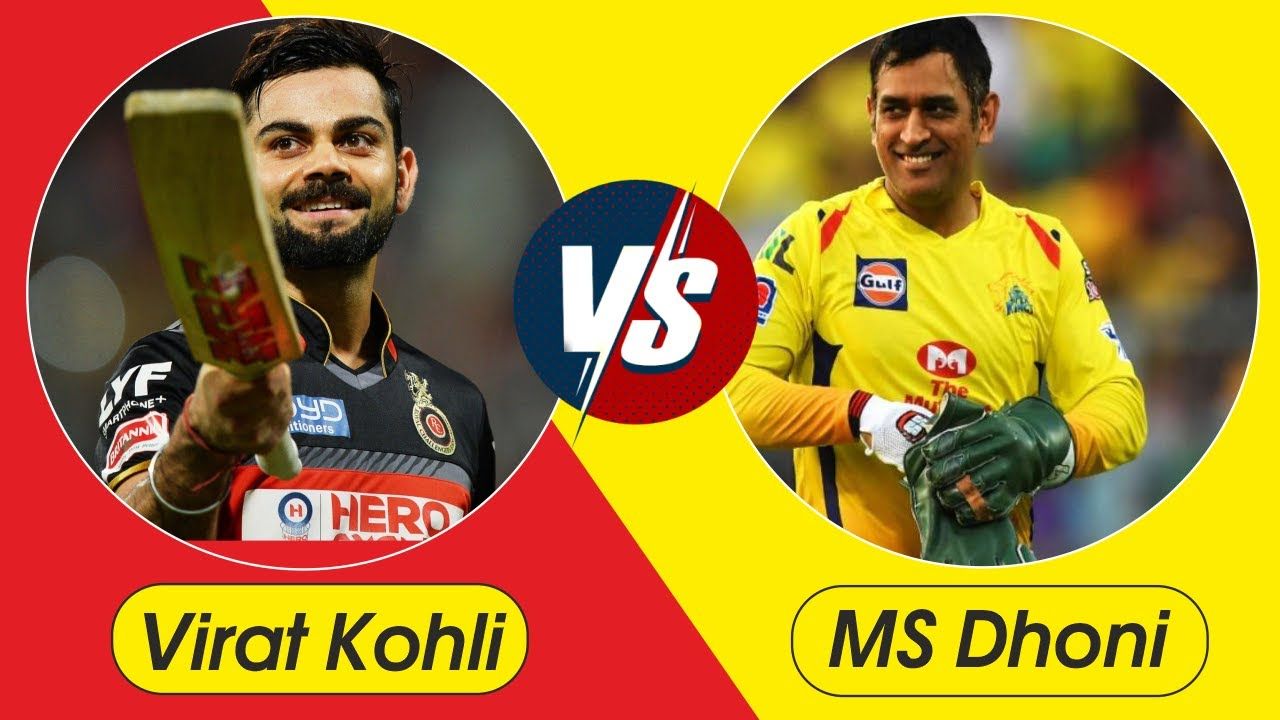
How do the captaincy records of these cricketing stalwarts compare, and what insights can we glean from their leadership styles and decisions?
Both MS Dhoni and Virat Kohli have been instrumental in shaping the Indian cricket team with their distinctive leadership styles under intense captaincy pressure.
Dhoni, renowned for his calm and composed demeanor, led India to numerous victories including the 2007 ICC World Twenty20, the 2010 and 2016 Asia Cups, and the 2011 ICC Cricket World Cup.
His captaincy style was about maintaining a cool head under pressure and backing his players to the hilt.
On the other hand, Kohli’s aggressive and passionate style has also paid dividends. Under his captaincy, India has achieved remarkable success, especially in Test cricket, reaching the number one ranking in 2016.
His leadership style involves expressing his emotions openly and setting high standards for performance.
The captaincy records of both Dhoni and Kohli reflect their unique leadership styles, each effective in its own way.
While Dhoni’s cool-headed approach helped in tricky situations, Kohli’s fiery passion inspired his teammates to push their boundaries. Both styles, albeit different, have been instrumental in moulding Indian cricket – Virat Kohli vs MS Dhoni.
Impact on Indian Cricket: Dhoni and Kohli
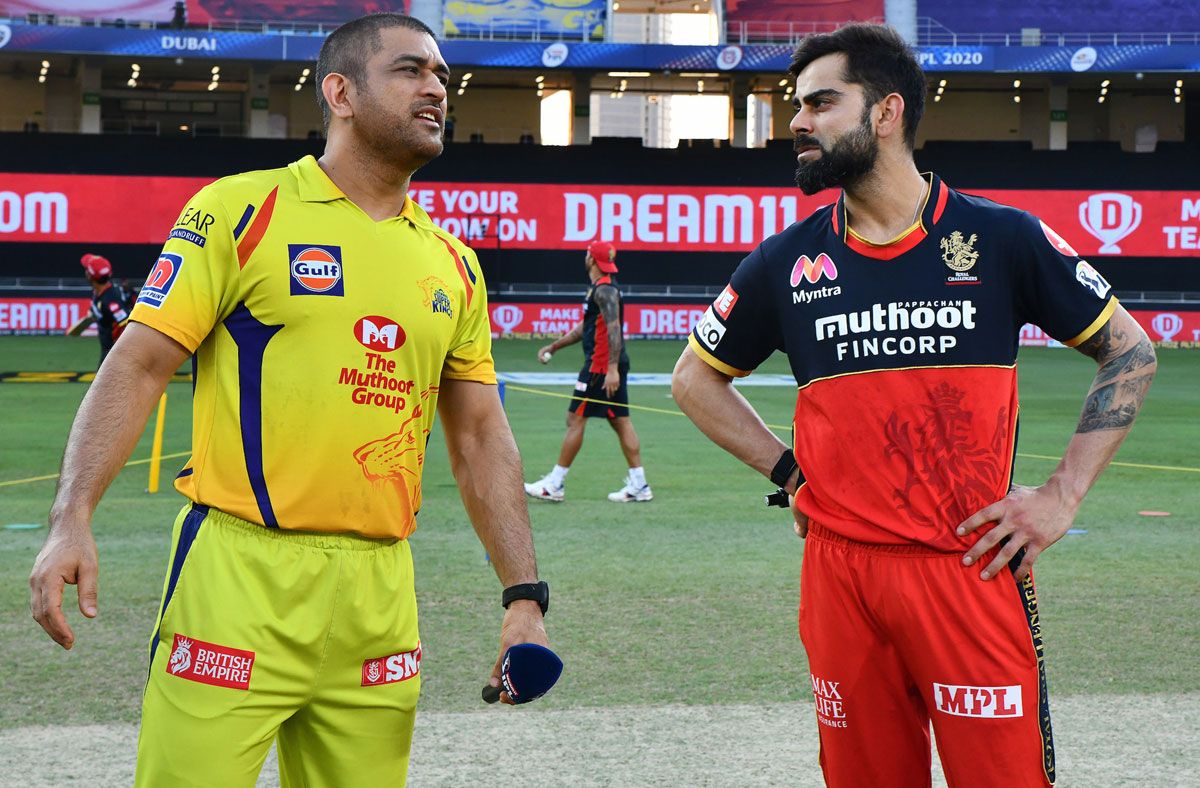
Virat Kohli vs MS Dhoni – Beyond their individual captaincy records, the contributions of MS Dhoni and Virat Kohli extend to shaping and influencing the broader landscape of Indian cricket.
Both players have had a significant impact, albeit in different ways, which has altered the course of Indian cricket history.
- Dhoni’s Leadership: Through his calm and composed demeanor, Dhoni instilled a sense of stability and confidence in the team. His emphasis on nurturing young talent helped build a strong team for the future.
- Kohli’s Aggression: In contrast, Kohli’s aggressive approach brought a new level of competitiveness to the team. His passion and intensity on the field energized the team and pushed them towards greater performance.
- Under Dhoni’s leadership, India achieved major victories such as the 2007 T20 World Cup and the 2011 ICC World Cup. These triumphs bolstered the team’s confidence and elevated India’s standing in international cricket.
- Kohli’s tenure saw India achieve significant success in Test cricket, including a historic series win in Australia. This demonstrated India’s growing prowess in the longest format of the game.
Conclusion
Both Virat Kohli and MS Dhoni have greatly impacted Indian cricket with their exceptional career performances.
Analyzing their batting statistics and captaincy records, it is evident that both have made noteworthy contributions to the sport.
While Kohli excels in consistent scoring, Dhoni’s leadership has steered India to numerous victories.
Their unique attributes and abilities have left an indelible mark on the sport, establishing them as two of the most influential figures in Indian cricket history – Virat Kohli vs MS Dhoni.
Frequently Asked Questions (FAQs)
How Did Virat Kohli and MS Dhoni's Personal Backgrounds Influence Their Cricket Careers?
Both Virat Kohli and MS Dhoni’s careers were greatly influenced by their personal backgrounds.
Their childhood passion for cricket, along with parental influence, fostered the discipline and determination required to excel at an international level.
Key moments in Kohli and Dhoni’s careers, beyond performance statistics, include career controversies and endorsement deals.
These aspects greatly influenced their public image and contributed to their overall success in the world of cricket.
How Have Kohli and Dhoni's Leadership Styles Influenced the Overall Team Dynamics and Performance of the Indian Cricket Team?
Kohli and Dhoni’s captaincy approach greatly influenced team dynamics and performance.
Kohli’s aggressive style encouraged competitiveness, while Dhoni’s calm demeanor promoted stability.
Their leadership impact was instrumental in shaping the Indian cricket team’s overall strategy and execution.
Can You Elaborate on the Nature of the Professional Relationship Between Kohli and Dhoni Over the Years?
Kohli and Dhoni’s professional relationship is marked by mutual respect and mentorship dynamics.
Dhoni’s guidance has been instrumental in Kohli’s leadership journey, leading to a productive collaboration that greatly benefited the Indian cricket team.
What Are Some Off-Field Contributions Made by Kohli and Dhoni to the Sport of Cricket and the Cricketing Community?
Off-field, both Kohli and Dhoni greatly contribute to cricket through charitable initiatives and brand endorsements.
They promote the sport globally, inspire young talent, and support different causes, enriching the cricketing community beyond the pitch.




